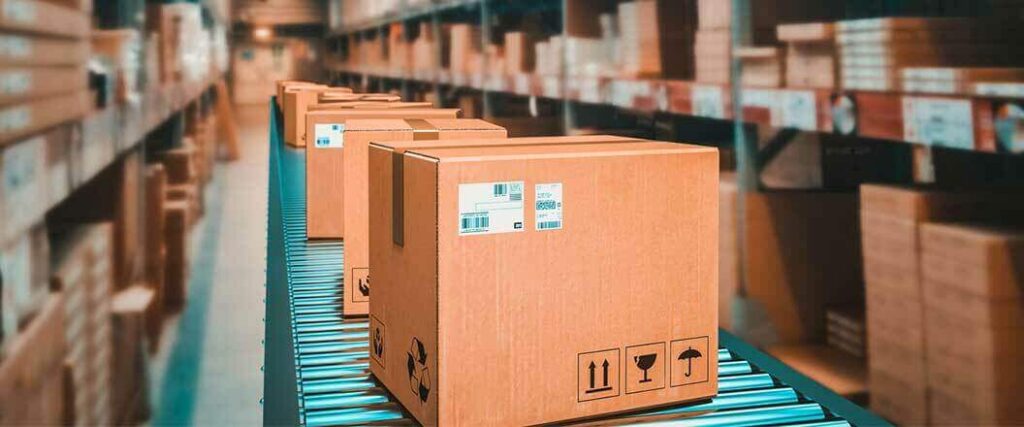
Knowing how to import goods for resale can unlock a world of business opportunities. However, it's not as simple as buying low and selling high. One of the biggest hurdles many new importers face is adhering to the regulations set by U.S. Customs and Border Protection (CBP). Get one thing wrong, and you could face delays, fines, or even have your goods seized.
U.S. Customs and Border Protection (CBP) stands as the first obstacle to importing goods for resale. Additional steps include understanding harmonized tariff codes and completing necessary paperwork. Costs such as duties, shipping fees, and brokerage services will also factor into your business plan.
Learn the ins and outs of importing goods for resale, including how to choose merchandise, what licenses may be required, and where to sell your goods.

As you learn about the import business, you'll encounter a variety of terms that are essential to grasp.
Before further exploration of the subject, let's clarify some of these crucial terms:
Armed with the right terminology, you're better prepared to negotiate the challenges of importing goods for resale. Compliance with U.S. import laws and regulations is non-negotiable, so a clear understanding of these terms will serve you well as you advance in your import business.
Yes, importing goods can be a lucrative venture. The profitability of your import business will depend on various factors.
Importers should be monitoring:
Performing market research allows you to identify profitable commodities and determine consumer demand for them.
On average, importers can expect to net approximately 10-15 percent profit when reselling their wares in the U.S. This number might not seem very high, but it can add up quickly when selling high-demand merchandise via e-commerce.
Some steps you can take to increase profitability include:
These methods will optimize your business processes and position you for maximum profitability in the competitive world of importing goods for resale.

The U.S. Customs and Border Protection (CBP) generally does not require importers to hold a special license. However, some types of imported products, such as food, alcohol, and firearms, require specific licenses or permits from other government agencies.
For goods that do require a license to purchase, you'll need to consult the relevant government agency. For instance, if you plan to import food or pharmaceuticals, you may need a license from the Food and Drug Administration (FDA).
Regardless of the type of merchandise, you’ll need an Employee Identification Number (EIN), which is supplied by the IRS. Additionally, proper customs forms must be filled out for each import shipment.

When choosing products to import, consider market demand, legal restrictions, and your overall costs. Here, market research is your best friend. Identify gaps in the market or trends that you can capitalize on, and always double-check to ensure you're not importing restricted items.
To select the best merchandise for your import business, follow these market research tips:
It’s also worthwhile to study what goods have dominated U.S. importing over a set period of time. For instance, these five commodities are the top imports into the U.S. in 2022 by dollar value.
| Commodity | US Dollar Value |
| Electrical machinery and equipment | 477.1 billion |
| Computers | 475.9 billion |
| Vehicles | 329.6 billion |
| Oil and other mineral fuels | 322.7 billion |
| Pharmaceuticals | 165 billion |
Source: worldstopexports.com
With thorough market research, you can reduce the risk of choosing merchandise that's difficult to sell or illegal to import. Doing so will give you provide an advantage in this competitive business.

Before you can start re-selling, you'll need to determine the legal structure of your business.
This decision will have implications for taxes, ownership power, and other aspects.
Three of the most popular business structures are:
For a new business with a single owner/employee, an LLC often makes the most sense. It offers a balance of legal protection and operational flexibility. You can always start as an LLC and transition to a corporation as your business grows and requires more complex organizational structures.
Other steps you’ll want to take to get your business off the ground include:
By following these steps, you’ll lay the groundwork for your import business. Each part of your business plan will have long-term impacts, so it's important to be thoughtful and thorough.
Find out more here: “Start an Import Export Business: Complete Step-by-Step Guide.”

You have your merchandise, you’ve registered your small business, and now it’s time to start selling. While there are multiple channels to do this, the easiest and most straightforward way is through e-commerce.
Setting up an e-commerce storefront will make it easy to offer your products to millions of customers in the U.S.
The basic steps of setting up an e-commerce business are as follows.
By effectively leveraging an e-commerce platform, you can make the process of selling your imported goods not only easier, but more profitable.
Of course, to have goods to sell, you have to successfully navigate the actual import process. This comes with its own challenges and costs.
Importing goods into the U.S. isn’t just about choosing the right products and setting up an online store. You’ll need to be familiar with the costs involved in the import process. These costs have an impact on your profit margins, so it's vital to factor them into your business plan.
Here is a list of some common fees you should be aware of:
Understanding these costs in detail can help you price your products more accurately and strategically. Proper budgeting and planning lead to healthy profit margins and make a sustainable import business.

If you're new to the import business, you’d be wise to retain a customs broker before getting started. They excel in expediting the customs clearance process.
The competitive advantages of hiring a customs broker include:
Partnering with a customs broker is like investing in peace of mind. Their knowledge and experience can be a game changer, especially when you're just starting out in the complicated import business.
For more details, check out our article, “11 Benefits of Using a Customs Broker: How a Broker can Boost Your Import Business.”
While the process of importing and reselling can seem daunting, partnering with an experienced customs broker can eliminate guesswork. That’s where we come in.
At USA Customs Clearance, we have the knowledge and know-how to ensure that your merchandise clears U.S. customs quickly. Look to us for assistance with:
Get your import business started on the right foot. Call our team of experts at (855) 912-0406 or contact us online to take the first step on your import adventure.
 Copy URL to Clipboard
Copy URL to Clipboard
Add your first comment to this post